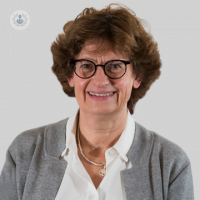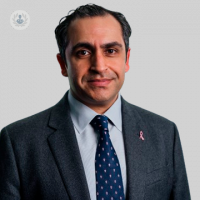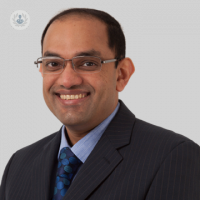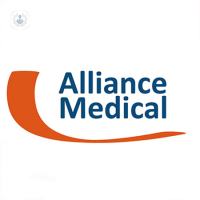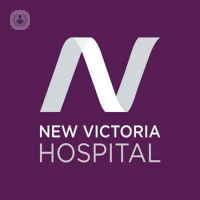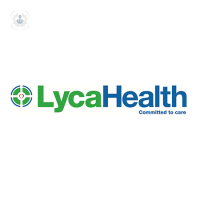A mammography, or mammogram, is a breast cancer screening to look for signs of breast cancer in women who otherwise show no signs or symptoms. It can also be used when a breast lump has been detected. Mammography uses X-ray imaging to detect signs of breast cancer in the early stages before they become noticeable.

What happens during a mammography?
A mammography takes two X-ray images of each breast. Each breast is scanned individually, and involves placing the breast on a clear plate on the X-ray machine, where it is gently compressed by another clear plate to flatten the breast. The X-ray images are then taken of each breast.
It may be advisable to wear a skirt or trousers and a separate top, rather than a dress as it will be necessary to strip to the waist. The test is usually carried out by a female mammographer. The images only take a few seconds each time.
Why should you have a mammography?
Breast cancer is the most common form of cancer in the UK, with around one in eight women diagnosed with breast cancer during their lifetime.
Breast cancer screening is really important in finding signs of breast cancer early. An early diagnosis of breast cancer greatly improves the prognosis.
What are the risks of mammography?
Mammograms can often cause anxiety, especially if something is found, which can lead to extra testing. Mammography is not perfect, and often signs of breast cancer may be found which prove to be incorrect, otherwise known as a false positive. Conversely, the opposite can occur where signs are missed, giving a false negative.
Despite this, the test is very worthwhile, as the benefits greatly outweigh the negatives, and detecting breast cancer early is the desired outcome other than receiving an all clear.
What happens after a mammogram?
Following the mammography test, you should receive your results within two weeks. Around one in 25 women are called back for further testing, with a further one in four women going on to be diagnosed with breast cancer.
Although this can be a very scary time if you are diagnosed, as previously mentioned, an early diagnosis is still preferred as the cancer can then be treated. The recovery rate is high in those patients who have been diagnosed early.
Mammography (breast screening)
Dr Shiroma De Silva-Minor - Clinical oncology
Created on: 06-20-2013
Updated on: 10-18-2023
Edited by: Karolyn Judge
A mammography, or mammogram, is a breast cancer screening to look for signs of breast cancer in women who otherwise show no signs or symptoms. It can also be used when a breast lump has been detected. Mammography uses X-ray imaging to detect signs of breast cancer in the early stages before they become noticeable.

What happens during a mammography?
A mammography takes two X-ray images of each breast. Each breast is scanned individually, and involves placing the breast on a clear plate on the X-ray machine, where it is gently compressed by another clear plate to flatten the breast. The X-ray images are then taken of each breast.
It may be advisable to wear a skirt or trousers and a separate top, rather than a dress as it will be necessary to strip to the waist. The test is usually carried out by a female mammographer. The images only take a few seconds each time.
Why should you have a mammography?
Breast cancer is the most common form of cancer in the UK, with around one in eight women diagnosed with breast cancer during their lifetime.
Breast cancer screening is really important in finding signs of breast cancer early. An early diagnosis of breast cancer greatly improves the prognosis.
What are the risks of mammography?
Mammograms can often cause anxiety, especially if something is found, which can lead to extra testing. Mammography is not perfect, and often signs of breast cancer may be found which prove to be incorrect, otherwise known as a false positive. Conversely, the opposite can occur where signs are missed, giving a false negative.
Despite this, the test is very worthwhile, as the benefits greatly outweigh the negatives, and detecting breast cancer early is the desired outcome other than receiving an all clear.
What happens after a mammogram?
Following the mammography test, you should receive your results within two weeks. Around one in 25 women are called back for further testing, with a further one in four women going on to be diagnosed with breast cancer.
Although this can be a very scary time if you are diagnosed, as previously mentioned, an early diagnosis is still preferred as the cancer can then be treated. The recovery rate is high in those patients who have been diagnosed early.


Worried! What happens at a one-stop breast clinic?
By Mr Simon Smith
2024-12-14
Not knowing what will happen on your first visit to a one-stop breast clinic and dealing with the thought of having symptoms of breast cancer can be a stressful combination. So, Mr Simon Smith, a top breast and endocrine surgeon explains exactly what happens at these types of clinics and how long you need to wait for your results. See more


What to expect before and after therapeutic mammoplasty
By Mr Brendan Smith
2024-12-14
If you are going to have therapeutic mammoplasty as the surgical technique in your breast cancer care treatment, understandably you may wonder what happens each step of the way. Here, one of our highly-experienced breast surgeons Mr Brendan Smith explains what happens from the initial consultation to recover post-operation. See more


Therapeutic mammoplasty: what are the possible complications of surgery?
By Mr Brendan Smith
2024-12-14
If you and your surgeon have decided together that therapeutic mammoplasty is the right surgical procedure for your breast cancer, you may be wondering about the possible risks of the operation. Here, one of our highly-experienced oncoplastic breast surgeons Mr Brendan Smith explains all. See more


Ask an expert: How are breast lumps assessed?
By Professor Kefah Mokbel
2024-12-13
Highly respected consultant oncoplastic breast surgeon Professor Kefah Mokbel explains how lumps in the breast are investigated in this expert guide. See more
Experts in Mammography (breast screening)
-
Miss Fiona MacNeill
SurgeryExpert in:
- Oncoplastic and reconstructive breast surgery
- Breast surgery
- Breast lumps
- Breast pain
- Family history of breast cancer
- Mammography (breast screening)
-
Mr Jason Lee
SurgeryExpert in:
- Breast cancer
- Mammography (breast screening)
- Benign breast lumps
- Breast cancer surgery
- Male breast cancer
-
Mr Neill Patani
SurgeryExpert in:
- Breast surgery
- Breast cancer
- Mammography (breast screening)
- Family history of breast cancer
- Breast pain
- Breast lumps
-
Dr Shiroma De Silva-Minor
Clinical oncologyExpert in:
- Breast cancer
- Radiotherapy
- Chemotherapy
- Immunotherapy
- Mammography (breast screening)
- Male breast cancer
-
Mr Harun Thomas
SurgeryExpert in:
- One Stop Breast Clinic
- Breast pain
- Breast cancer
- Breast surgery
- Mammography (breast screening)
- Breast lumps
- See all

Alliance Medical Marylebone
Alliance Medical Marylebone
10-11 Bulstrode Place, London. W1U 2HX
No existe teléfono en el centro.
By using the telephone number provided by TOP DOCTORS, you automatically agree to let us use your phone number for statistical and commercial purposes. For further information, read our Privacy Policy
Top Doctors

New Victoria Hospital
New Victoria Hospital
184 Coombe Lane West, Kingston upon Thames, KT2 7EG
No existe teléfono en el centro.
By using the telephone number provided by TOP DOCTORS, you automatically agree to let us use your phone number for statistical and commercial purposes. For further information, read our Privacy Policy
Top Doctors

LycaHealth Canary Wharf
LycaHealth Canary Wharf
1 Westferry Circus, Canary Wharf. E14 4HD
No existe teléfono en el centro.
By using the telephone number provided by TOP DOCTORS, you automatically agree to let us use your phone number for statistical and commercial purposes. For further information, read our Privacy Policy
Top Doctors
-
Alliance Medical Marylebone
10-11 Bulstrode Place, London. W1U 2HX, Central LondonExpert in:
- Cardiology
- Diagnostic Imaging
- Ultrasound
- Gastroenterology
- Neurology
- Magnetic resonance
-
New Victoria Hospital
184 Coombe Lane West, Kingston upon Thames, KT2 7EG, South LondonExpert in:
- Cardiology
- General Surgery
- Orthopaedic surgery
- Breast augmentation
- Pain management
- Spine
-
LycaHealth Canary Wharf
1 Westferry Circus, Canary Wharf. E14 4HD, Central LondonExpert in:
- Cardiology
- Dermatology
- Diagnostic Imaging
- Women’s health
- See all
- Most viewed diseases, medical tests, and treatments
- CAR-T cells
- Hormone therapy
- Migraine
- Hodgkin's lymphoma
- Joint pain
- Nutrition
- Weight loss injections
- Genetic testing
- Testicular ultrasound
- Nipple discharge

